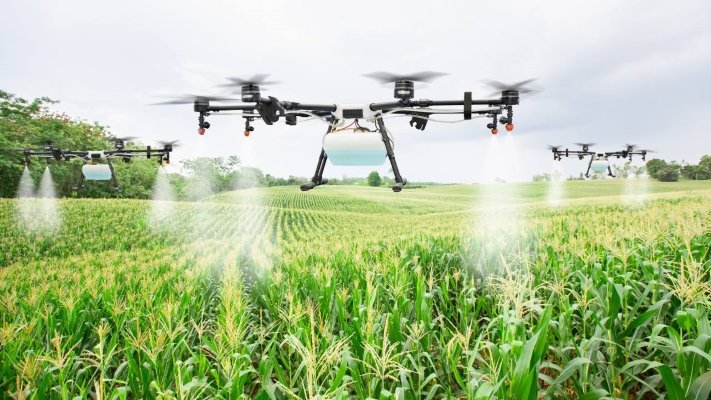As time progresses, smallholder farmers search for ways to improve their production.
They adopt modern-day farming practices such as greenhouse farming, hydroponic farming, monoculture farming, hybrid seed technology, drones, and PA, which is an advanced innovation and optimized field-level management strategy used in agriculture that aims to improve the productivity of resources on agriculture fields.
Precision agriculture involves the use of technologies such as GPS, sensors, drones, and data analytics to optimize crop production and reduce environmental impacts. It can help farmers increase yields, save costs, and manage risks.
However, precision agriculture also faces some challenges that limit its adoption and effectiveness for farmers in developing countries.
A Sahel Consulting Agriculture and Nutrition Limited report in Nigeria disclosed that farmers’ low adoption of precision agriculture in the country is owing to the high cost of the technology that has made it unaffordable to millions of farmers in the country and poor awareness, among others.
Despite the many benefits of precision agriculture, the uptake of these technologies in Nigeria has been slow. One of the main challenges is the high cost of precision farming technologies, which can be prohibitive for small-scale farmers," the report said.
The report called for affordable and tailored precision farming technology for smallholder farmers to accelerate adoption in the country and across the African continent.
While precision agriculture can offer significant benefits to smallholder farmers, it also has certain limitations.
Benefits of Precision Agriculture
Precision agriculture can offer several benefits to farmers and the environment in developing countries. The farming system allows farmers to target inputs such as water, fertilizers, and pesticides precisely where they are needed, reducing waste and resource utilization. It also helps smallholder farmers monitor and manage crops and identify issues like nutrient deficiencies, pests, and diseases early on, leading to higher yields and better-quality produce.
Precision agriculture promotes sustainable farming practices by minimizing the use of chemicals and fertilizers, which in turn reduces negative environmental impacts. Farmers can collect and analyze data from various sources, such as sensors, drones, and satellite imagery, to make informed decisions about planting, irrigation, and harvesting to yield quality produce and meet market demands.
Limitations of Precision Agriculture for Smallholder Farmers
Despite its potential benefits, precision agriculture also faces some challenges that hinder its adoption and implementation.
High Cost of Equipment: Implementing precision agriculture technologies can require a significant upfront investment in equipment, sensors, software, and training. This cost might be a barrier for smallholder farmers with limited financial resources.
Technology Access and Literacy: Smallholder farmers in remote or underdeveloped areas may lack access to the necessary technology and the skills to effectively use and interpret the collected data. The use of the technology can require advanced knowledge and skills, which can be very challenging if the farmers are not familiar with the technologies.
Maintenance and Support: Technical issues or equipment breakdowns can disrupt farm operations. Smallholder farmers might struggle to find timely and affordable technical support in such situations.
Scale and homogeneity: Some precision agriculture technologies are designed for larger, more homogenous fields. Smallholder farms with diverse crops and smaller plots might face difficulties adapting these technologies to their unique conditions.
Data Interpretation: Collecting data is just the first step. Interpreting and acting on the collected data can be complex, and smallholder farmers might need assistance in understanding how to optimize their practices based on the information.
In conclusion, while precision agriculture offers numerous benefits to smallholder farmers, such as increased efficiency, improved yields, and cost savings, it's important to consider the limitations that might hinder its widespread adoption among this demographic. Overcoming these limitations would require targeted efforts to provide training, affordable technology options, and localized solutions that fit the specific needs and challenges of smallholder farmers.

